Matt’s project is a wonderful example of how our heritage can enrich our lives. My father kept a detailed daily diary from his teens to the day he died 60 years later. In it, he noted every person he ever came in contact with by any means, every penny he earned and spent, the day’s weather, when he rose and went to bed, every book or movie he read or saw. And it all was in tiny 5 point meticulous handwriting. The internet has allowed me to live his day to day life as if I were by his side. And this all started because my daughter asked him about our family history for a high school project. His two page letter about his family started me on a fabulous journey and it’s given my life a purpose.


Wouldn’t it be exciting to read the diary of an ancestor who recorded his or her daily activities?
Matt Unger, a 40-ish software executive in New York, was handed his grandfather Harry Scheurman’s 1924 diary, written when he was 29 and had been in the US for 11 years. Matt has transcribed each journal entry at his website http://papasdiary.blogspot.com. Scheurman had immigrated from Sniatyn, then in Austro-Hungary.
Matt’s project received coverage in The New York Times.
As we hear more frequently these days, family history researchers are getting bitten by the genealogy bug at ever younger ages. Although Matt was given the pocket-sized diary for a fifth-grade family history project, it wasn’t until Thanksgiving 2007 that he examined it closely and decided to transcribe it.
MyHeritage interviewed Matt via email and is happy to offer his comments on this wonderful and very personal project.If you are the lucky caretaker of a beloved family document, Matt has advice for you:
If you’re interested in understanding as much as you can about your family artifacts, I would recommend that you find a way to share them with the world, particularly through social media, blogs and sites like MyHeritage. The stories behind these artifacts are great on their own, but once you put them online for others to discover, the community at large starts to teach you things you might not have known, and you begin to see where your family narrative intersects with others.
If you decide you want to take on a digitization and publishing project, my other recommendation is to just get started — today. If you have a lot of material, it’s tempting to make big plans and dream about making the world’s most spectacular family history project — but if you assign yourself such a big task you may feel too intimidated to ever get started. It’s better to take little bites and enjoy each one. Papa’s Diary Project was a lot of work and wasn’t easy, but by limiting myself to exploring just one entry a day, I never felt overwhelmed.
Harry wrote his diary mostly in English, not his first language, obviously. According to Matt, Harry learned it on his own reading the New York Times and literary works in the New York Public Library reading room.
I don’t think you’d know he wasn’t a native English speaker by reading the diary — his handwriting is beautiful and he has a clear, slightly formal style, though his tone can be quite lyrical and romantic when the mood strikes.
I think English must have come easily to him because his home town of Snyatin was an Austro-Hungarian trading hub where Jews grew up speaking six or seven languages. His diary does have a few short passages in Yiddish, Hungarian and German, but mostly when he quotes literature or uses vernacular. My readers often jumped in to help me translate or understand Papa’s non-English writing and references.
 Matt says that he doesn’t think he was any more interested in his family history than most people are.
Matt says that he doesn’t think he was any more interested in his family history than most people are.
In fact, I’d say Papa’s Diary Project is less about my general family history and more about my grandfather specifically. Papa died when I was four, so I only remember him as a kind and loving man who seemed contented and delighted with his life.
Papa’s Diary Project helped me get a much more nuanced view of him, a glimpse of who he was and what he struggled with long before he became my Papa. Even the people we admire most have had their share of work and struggles and failures; I think understanding that helps us admire and appreciate them all the more.
His fifth-grade family history project planted the seed for this project.
As I mention in the blog, my grandfather’s account of the day he left Snyatin, and said goodbye to his weeping father at the train station, struck me as unbearably beautiful. I had no perspective on it at the time, but now think of it as the first written work that really demonstrated to me what a good writing can achieve — the tone, the emotion, the clarity, the sense of time and place, all conveyed in just a couple of paragraphs.
Matt encourages – absolutely – all schools to require such projects.
If I were an educator, I would love projects like this because they’re a great way to keep students personally invested in understanding history and developing research and presentation skills. And as a student, the rewards can be immense and the excitement can stick with you forever.
While he worked on the project, he was also researching his Scheurman family and other Sniatyn relatives via archival documents, databases and other resources.
I attended and presented at a meeting of the Snyatiner Sick and Benevolent Society, the direct descendent of the burial society founded by early emigrees from my grandfather’s home town. The head of that organization is a pretty experienced genealogy researcher and did a lot of database research for Papa’s Diary Project.
I met a cousin through my blog — he got in touch with me after he found his grandfather’s name in one of my grandfather’s diary entries — and he turned out to be a true family historian who helped me tremendously.
I got a lot of help from the Lower East Side Tenement Museum, who allowed me to look through their collection. The New York Historical Society reading room was a great resource (that’s where I found my grandfather’s address in a phone book from the 1920’s) and of course the New York Public Library has a huge amount of material on microfilm; that’s where I found the text of an editorial on Zionist factions that my grandfather wrote in Yiddish for the Jewish Daily Forward.
 In regard to transcribing the diary, Matt’s compelling interest was to understand what the texture of his grandfather’s day was, what his cultural references meant and how 1924 fit into the narrative of his grandfather’s life.
In regard to transcribing the diary, Matt’s compelling interest was to understand what the texture of his grandfather’s day was, what his cultural references meant and how 1924 fit into the narrative of his grandfather’s life.
Spending so much time with his diary each day was like walking into a time machine; it was so absorbing that I didn’t think about much beyond his story.
With his work on the diary, Matt has also been able to trace other families named in the diary, such as SURDUT, via the project’s website.
People wrote to me on several occasions to tell me they came across the blog while researching their own families. Someone related to SURDUT got in touch with me, along with the cousin I mentioned earlier.
Among other resources searched, Matt also accessed JewishGen.
I looked at JewishGen a lot — there’s incredible material in there. I also spent a lot of time in the New York Times’ Online archive. My grandfather wrote a lot about music, so archive.org was a great resource for tracking down old recordings of the songs and artists he mentioned. My research has slowed down a lot, though.
We asked Matt if he was inspired to keep his own diary.
What it really inspired me to do was urge other people take on similar projects. My grandfather wasn’t rich, famous, or a historical figure, yet his story is as dramatic and fascinating and worthy of attention as the plot in any novel. And there are millions of stories like his out there, but we don’t know about them because they’re trapped — trapped in artifacts like photos and letters and diaries and just waiting to get out.
We should do everything we can to encourage family historians to reveal these narratives before they’re lost.
In 2008, Matt began to transcribe the letters his grandfather wrote to his grandmother (known as “Nana”) over a five-year courtship. His mother thought the letters were lost, but Matt found them in her attic.
The letters constitute a different sort of narrative than Papa’s diary, less rich in the details of day-to-day life but no less intimate and revealing.
What has been interesting over the years is that readers of the Papa’s Diary project have written to Matt and provided great contributions, enabling him to understand many organizations, events and people mentioned in the diary. He encourages people to send him an email to papasdiary@gmail.com, with “contribution” in the subject line.
Did you enjoy Matt’s story? Have you checked his website? Let us know in the comments below how you feel about his work.
If you have inherited an ancestor’s diary and are transcribing it, let us know in the comments below, or write to stories@myheritage.com



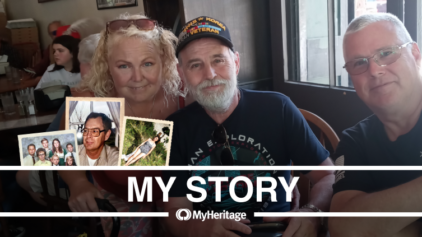
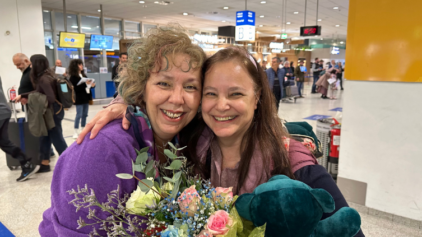
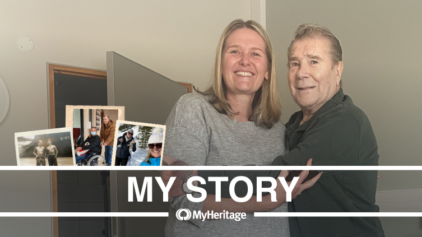
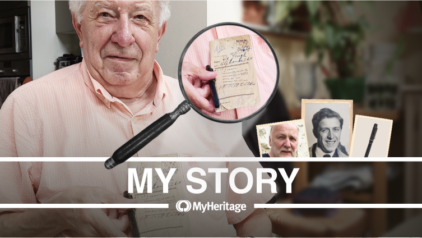
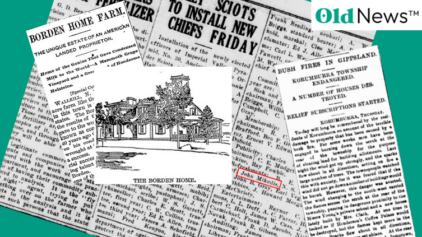
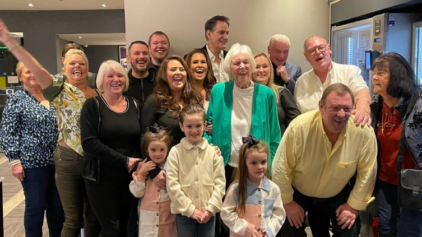
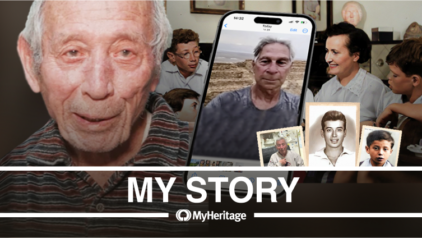
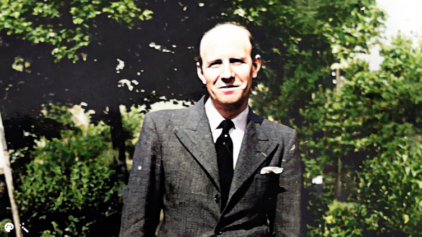
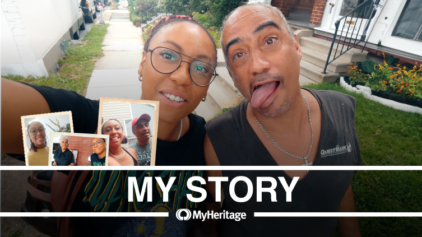
mimi
November 4, 2013
Le storie di nostri antenati sono le storie di vita,storie che affascina la nostra mente ,che incuriosisce a scoprire le nostre radice per lasciarli alle generazione future.